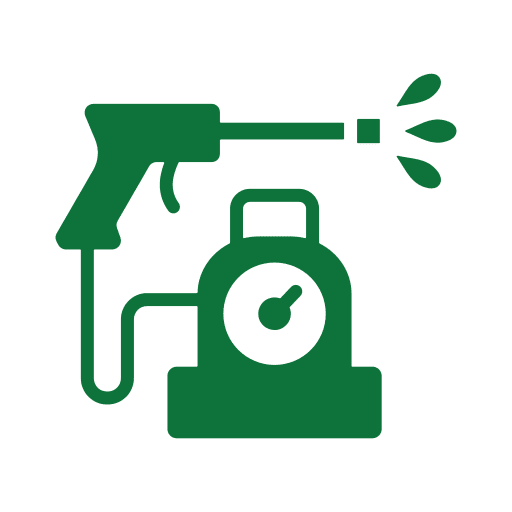Services
Custom Screening Company in Bonita Springs
Explore Our Range of Expert Screening Services & more
EDGEVIEW SCREENED RAIL SYSTEMS – PREFFERD INSTALLER
MEET ANY ARCHITECTURAL CHALLENGES
22.5° / 30° / 45°
MULLION ANGLED POSTS
Edgeview is the premiere screen enclosure railing system. A screened railing system specifically designed for multistory balconies or lanais. It has customizable options for either picket or cable integration, as well as motorized screen from ceiling to chair rail.
How is Edgeview Different?
Homeowners no longer have to make sacrifices. Edgeview continues to keep out unwanted, outside elements but allows for an unobstructed view up to 21 feet wide above the chair rail! It’s patented design allows you to install, clean, and maintain from the inside. This means all aluminum and stainless hardware can be maintained without scaffolding or ladders.

Screen Repair & Installation
Maintain the elegance and functionality of your outdoor spaces with our expert screen repair and installation services in Bonita Springs. We offer outdoor screen repair, custom screens, screen replacement, and pool cage rescreening, ensuring your screens are both beautiful and durable.
Learn More

Paver Sealing
Protect and enhance the look of your pavers with our professional paver sealing services in Bonita Springs. Our high-quality sealing solutions protect your pavers from the elements, preserving their beauty and extending their lifespan.
Learn More

Pressure Washing
Keep your outdoor areas immaculate with our comprehensive pressure washing services in Bonita Springs. Ideal for driveways, patios, decks, and more, our pressure washing removes dirt, grime, and mildew, restoring your surfaces to their original condition.
Learn More

Additional Outdoor Services
Explore our range of additional services tailored to meet all your outdoor needs in Bonita Springs. Our team provides comprehensive solutions to enhance your outdoor spaces, from landscaping to deck staining.
Learn More
Service Details
Screen Repair & Installation
Scope of Services
Benefits
Process Overview
Customer Testimonials
“Superior Outdoor Services did an excellent job on our pool screen repair. Highly recommended!”
FAQs
How often should screens be replaced?
The frequency of replacing screens can vary depending on several factors such as the material, weather conditions, and usage. Here are some general guidelines:
Pool Cages and Patio Screens:
Every 5-10 years: High-quality screens can last up to 10 years, but it is recommended to inspect them regularly. Exposure to sun, wind, and rain can cause wear and tear, leading to the need for replacement.
Window Screens:
Every 10-15 years: Window screens typically last longer than pool and patio screens. Regular cleaning and maintenance can help extend their lifespan.
Signs that screens need replacement:
Visible tears or holes
Sagging or loose screens
Rusted or corroded frames
Difficulty seeing through the screen due to dirt or discoloration
Increased number of insects entering the area
Regular inspections and maintenance can help identify issues early and prevent the need for more frequent replacements.
What are the benefits of custom screens?
Custom screens offer a variety of benefits compared to standard, pre-made screens. Here are some of the key advantages:
Perfect Fit: Custom screens are made to measure, ensuring a perfect fit for your specific windows, doors, pool cages, or patios. This minimizes gaps and ensures better protection and aesthetics.
Enhanced Durability: High-quality materials and craftsmanship are often used in custom screens, resulting in greater durability and a longer lifespan compared to off-the-shelf options.
Improved Functionality: Custom screens can be designed with specific functionalities in mind, such as solar screens for energy efficiency, pet-resistant screens for homes with animals, or heavy-duty screens for areas prone to harsh weather conditions.
Aesthetics: Custom screens can be tailored to match the style and color of your home, enhancing its overall appearance. You can choose from a variety of frame colors, screen materials, and mesh types.
Increased Property Value: High-quality, custom-fit screens can enhance the curb appeal and functionality of your home, potentially increasing its market value.
Pest Control: A precise fit and high-quality materials can provide better protection against insects and pests, helping to keep your living spaces more comfortable.
Customization Options: You can choose specific features like UV protection, privacy screens, or even motorized retractable screens, depending on your needs and preferences.
Ease of Use: Custom screens can be designed with features like easy removal for cleaning, sliding mechanisms, or hinges for easy access, making them more user-friendly.
Energy Efficiency: Custom screens, especially solar screens, can help reduce energy costs by blocking a significant portion of the sun’s heat, keeping your home cooler in the summer and reducing the need for air conditioning.
Noise Reduction: Some custom screen options are designed to help reduce outside noise, contributing to a quieter indoor environment.
Paver Sealing
Scope of Services
Benefits
Process Overview
Customer Testimonials
FAQs
How often should pavers be sealed?
Pavers in outdoor living spaces, such as pool patios, should typically be sealed every 2-3 years. However, the exact frequency can depend on several factors, including:
Climate: In areas with harsh weather conditions (extreme heat, cold, or heavy rainfall), pavers might need to be sealed more frequently.
Usage: High-traffic areas, such as frequently used patios or pool decks, may require more frequent sealing to maintain their appearance and protection.
Type of Paver: Different materials have different sealing needs. Concrete pavers might require more frequent sealing compared to natural stone pavers.
Exposure to Elements: Pavers exposed to constant sunlight, water, or other elements may need to be sealed more often.
Signs that pavers need to be resealed:
- The pavers begin to lose their color and look dull.
- Water no longer beads on the surface.
- The pavers show signs of staining or wear.
- Increased growth of weeds or moss between the pavers.
Benefits of sealing pavers:
- Protects against staining from oils, chemicals, and other substances.
- Enhances the color and appearance of the pavers.
- Helps to prevent weed growth and insect infestations.
- Reduces the effects of weathering and UV damage.
- Makes cleaning and maintenance easier.
What are the benefits of paver sealing?
Sealing pavers offers numerous benefits that enhance the appearance, durability, and functionality of outdoor spaces. Here are some of the key benefits:
Protection Against Stains: Sealing pavers creates a protective barrier that helps prevent stains from oil, grease, food, drinks, and other substances from penetrating the surface.
Enhanced Color and Appearance: A sealant can enhance the natural color of the pavers, making them look more vibrant and appealing. It can also provide a glossy or matte finish, depending on the type of sealant used.
Prevention of Weed and Moss Growth: Sealing helps to inhibit the growth of weeds, moss, and grass in the joints between pavers, making maintenance easier and keeping the area looking clean.
Protection from Weathering: Sealed pavers are more resistant to the effects of weather, such as UV rays, rain, and freeze-thaw cycles, which can cause fading, cracking, and erosion.
Reduced Efflorescence: Efflorescence, a white, powdery residue that can appear on the surface of pavers, is less likely to occur when pavers are sealed, as the sealant blocks moisture from penetrating the pavers.
Easier Cleaning and Maintenance: Sealed pavers are easier to clean and maintain. Dirt, grime, and spills are less likely to penetrate the surface, making regular cleaning more effective.
Enhanced Durability: The protective layer provided by the sealant helps to extend the lifespan of the pavers by reducing wear and tear and protecting against damage from chemicals and de-icing salts.
Improved Traction: Some sealants are designed to improve the traction of pavers, making them less slippery when wet and enhancing safety in areas such as pool decks and walkways.
Increased Property Value: Well-maintained and visually appealing outdoor spaces can enhance the overall value of a property. Sealed pavers contribute to a polished and well-cared-for appearance.
Reduced Erosion: Sealing helps to stabilize the joints between pavers, reducing the risk of erosion and shifting, which can lead to uneven surfaces and potential tripping hazards.
Regularly sealing pavers is a proactive way to maintain their beauty and functionality, ensuring that outdoor spaces remain attractive and durable for years to come.
Pressure Washing
Scope of Services
Benefits
Process Overview
Customer Testimonials
FAQs
How often should pressure washing be done?
The frequency of pressure washing outdoor spaces depends on several factors, including the type of surface, environmental conditions, and usage. Here are some general guidelines for different types of outdoor areas:
Patios and Decks:
- Annually: For general maintenance, pressure washing once a year is usually sufficient to remove dirt, mold, mildew, and stains.
- High-Traffic Areas: If the area is heavily used or prone to spills and stains, consider pressure washing twice a year.
Driveways and Walkways:
- Annually: Pressure washing once a year helps keep these surfaces free from dirt, oil stains, and algae growth.
- After Heavy Spills or Stains: Additional cleanings might be necessary if there are significant oil spills, paint, or other stubborn stains.
Pool Decks and Surrounding Areas:
- Annually: An annual pressure washing is recommended to maintain cleanliness and prevent the buildup of grime and mildew.
- Seasonal: In regions with distinct seasons, consider pressure washing at the start and end of the swimming season.
Fences and Walls:
- Every 1-2 Years: Pressure washing every one to two years can help maintain the appearance and prevent the buildup of mold, mildew, and dirt.
- After Severe Weather: Additional cleanings might be necessary after heavy storms or significant environmental events.
Outdoor Furniture:
- Annually: Pressure washing outdoor furniture once a year can help remove dirt and prevent mold and mildew growth.
- As Needed: Additional cleanings might be required if the furniture becomes visibly dirty or stained.
House Exteriors (Siding, Brick, etc.):
- Every 1-2 Years: Pressure washing every one to two years helps maintain the appearance and remove dirt, mold, and mildew.
- After Heavy Weather: Additional cleaning might be necessary after significant weather events that cause dirt and debris buildup.
Benefits of Regular Pressure Washing:
- Improved Appearance: Keeps surfaces looking clean and well-maintained.
- Preventive Maintenance: Removes harmful substances like mold, mildew, and algae, which can damage surfaces over time.
- Increased Longevity: Helps extend the lifespan of outdoor surfaces by preventing deterioration.
- Enhanced Safety: Reduces the risk of slips and falls by removing slippery substances like algae and mold.
Regular pressure washing is an effective way to maintain the cleanliness and integrity of outdoor spaces, enhancing their appearance and longevity.
Is pressure washing safe for all surfaces?
Pressure washing is an effective cleaning method for many outdoor surfaces. However, not all surfaces are equally suited for pressure washing, as some may be damaged by the high-pressure water. Here are the best surfaces for pressure washing:
Concrete and Brick:
- Driveways, Walkways, and Patios: These hard, durable surfaces can handle the high pressure and benefit from the removal of dirt, stains, and mildew.
- Retaining Walls: Pressure washing can clean away accumulated dirt and organic growth.
Decks:
- Wooden Decks: Pressure washing can remove dirt, mold, and old paint or stain, but it should be done carefully to avoid damaging the wood. Using a lower pressure setting is recommended.
- Composite Decks: These can also be pressure washed to remove grime and stains, though care should be taken to follow the manufacturer’s guidelines.
House Siding:
- Vinyl Siding: Pressure washing can effectively remove dirt, mold, and mildew.
- Brick and Stone Exteriors: These durable materials can handle pressure washing to remove dirt and stains.
Fences:
- Wooden Fences: Like wooden decks, these can be pressure washed to remove dirt and mildew, but care should be taken to use the appropriate pressure setting.
- Vinyl Fences: These can be easily cleaned with a pressure washer to remove dirt and algae.
Outdoor Furniture:
- Plastic and Metal Furniture: Pressure washing can remove dirt, mold, and mildew effectively.
- Wooden Furniture: Can be pressure washed with caution, using a lower pressure setting to avoid damage.
Pool Decks:
- Concrete, Stone, and Paver Pool Decks: These surfaces can be pressure washed to remove dirt, algae, and other buildup.
Garage Floors:
- Concrete Floors: Pressure washing can effectively clean oil stains, dirt, and grime from concrete garage floors.
-
Roofs (with caution): Asphalt Shingles and Tile Roofs: Soft washing, a variation of pressure washing with lower pressure and special detergents, is recommended to avoid damage while cleaning roofs.
Surfaces to Avoid Pressure Washing or Use with Caution:
- Delicate Surfaces: Surfaces like stucco or painted wood can be damaged by high-pressure washing and should be cleaned using low pressure or alternative methods.
- Soft Materials: Pressure washing can erode softer materials like softwood decking or older brick, so it’s important to use a gentle approach.
- Electronics and HVAC Units: Avoid pressure washing around electrical components and HVAC units to prevent damage.
Always test a small, inconspicuous area first and follow the manufacturer’s guidelines for any specific materials. Using the correct pressure setting and nozzle for each surface is crucial to avoid damage while achieving effective cleaning results.
Additional Outdoor Services
Scope of Services
Benefits
Process Overview
Customer Testimonials
FAQs
What additional services do you offer?
It would be our pleasure to learn more about your custom outdoor project! Always with a complimentary quote. Call Now!
How can I schedule a consultation?
Call 239-357-2627: Most quotes are right over the phone, and all are complimentary!
What Our Clients Say
Here’s what some of our happy clients have to say:















